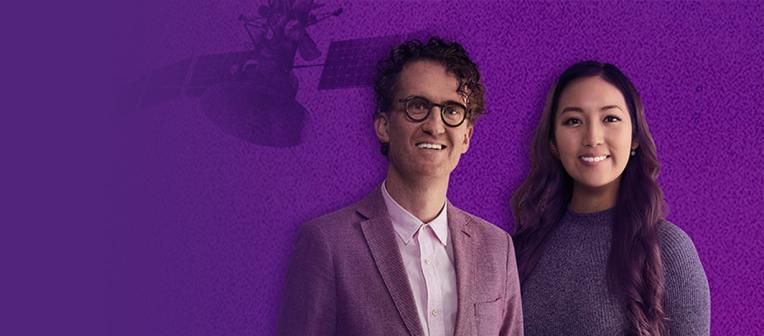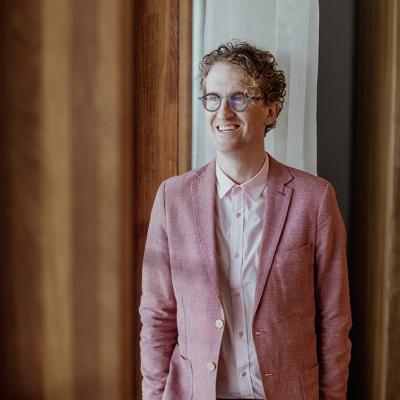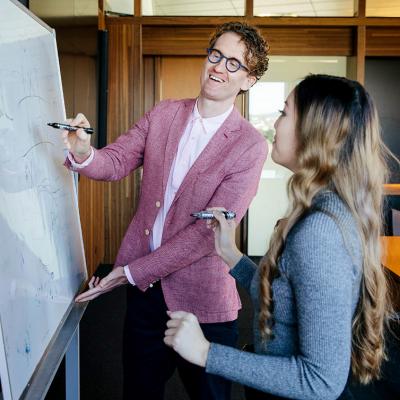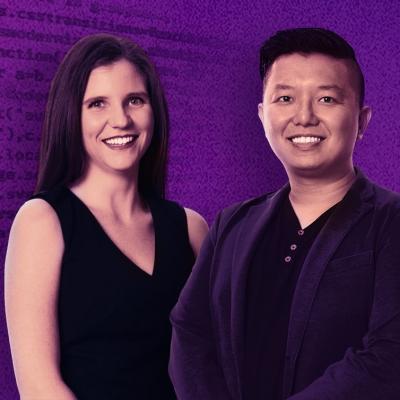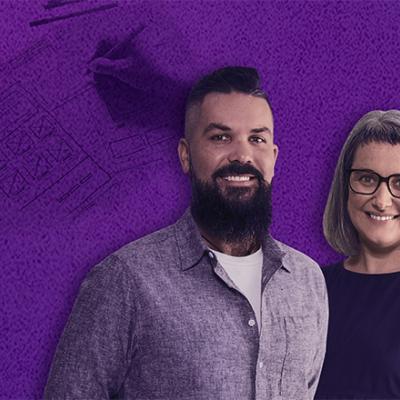Media and humanity are linked in an eternal cycle. Discover how communication graduates at UQ are paving the way towards a better society – featuring insights from Associate Professor Nicholas Carah and communication student Dianne Mai.
For Nic and Dianne, the answer seems like a clear no – modern humanity is inextricably tied to media to the point where we likely wouldn’t survive without them.
“We live and breathe media,” says Nic.
“They’re tethered to our body, woven into our homes – a lens we use to make sense of the world.”
Even if physical life could endure if media vanished overnight, our core ways of understanding our surroundings and each other would be gone. Most individuals would suffer psychologically and society as we know it would swiftly crumble.
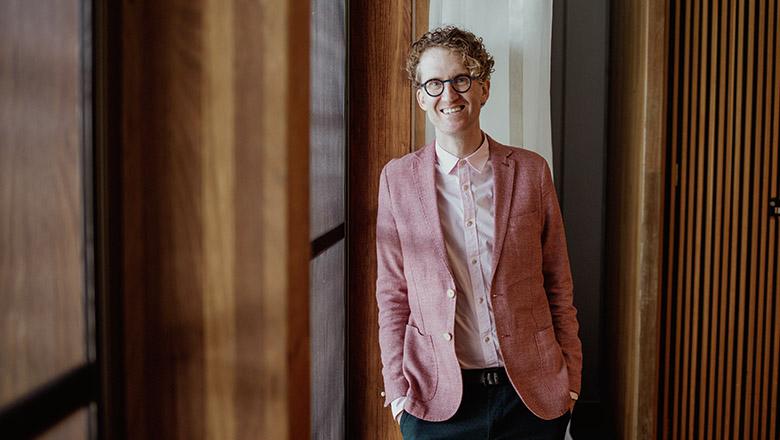
“Media are a dynamic organism. They feed off and feed back into our culture.”
- Nicholas Carah, Director of Digital Cultures & Societies, Faculty of Humanities, Arts and Social Sciences
The current state of media
Luckily, the scenario of media disappearing is purely hypothetical. Media as we know them aren’t going anywhere any time soon.
“Media are now at the centre of our social world,” says Nic.
“They’re central to how we organise, what we think about, like, buy and vote for.”
Dianne agrees that media are integral to just about every aspect of contemporary life.
“These platforms are at the heart of how we organise our sense of who we are, how we belong and how we get things done in the world,” she says.
And these platforms are only going to keep evolving. Nic explains they already inform areas including:
- public health
- politics
- entertainment
- news.
“What media technologies and platforms are now capable of was unthinkable 10 years ago,” he says.
“They permeate through our whole society. Understanding and harnessing this potential is vital to shaping our future.”
What’s the future of communication?
While media continue to evolve, so too must our approach to communication.
“Using media is no longer just about making and broadcasting stories,” says Nic.
“Our media system is now a data-driven feedback loop that learns and responds to us.”
Algorithms and artificial intelligence present a unique challenge for communication professionals, academics and students: how do we keep the humanity in stories that are delivered more and more by robots?
“The future of communication is understanding and managing these circuits,” says Nic.
“So there’s this delicate dance between humans and machines.”
As a current communication student, Dianne is on the front line of figuring out how to navigate these media challenges. But she tends to see the changing nature of communication as exciting rather than frightening.
“I’m learning how widely these skills can be used,” she says.
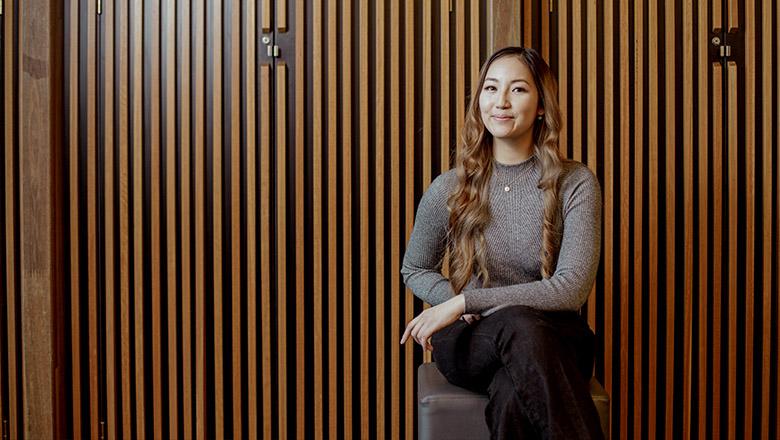
“It’s not just learning about how to tell stories – it’s about understanding what underpins our story as a society.”
- Dianne Mai, Bachelor of Communication student
Learn more about the Bachelor of Communication, Nic Carah or Dianne Mai’s experience at UQ. Make UQ your first QTAC preference.

